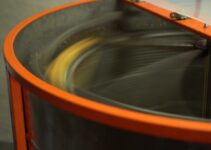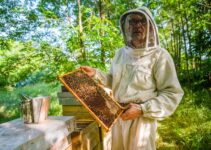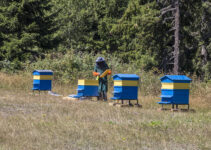Texas is renowned for being big and bold in everything, but how does the state’s relaxed attitude in many legal sectors affect beekeepers in Texas? What are the laws regarding keeping bees in Texas, and are there any specific benefits for beekeepers?
State laws for beekeeping in Texas are mostly in place to control the spread of bee pests and diseases in the beekeeping industry. Permits and inspections from the Texas Apiary Inspection Service (TAIS) are required to import and export bees. Local by-laws regulate small-scale beekeeping in Texas.
While you may expect beekeeping in Texas to be relatively unregulated, there are two levels of law governing beekeepers in the state. State laws apply to all beekeepers in Texas, and local municipal laws regulate beekeeping to different degrees in built-up regions of the state.
Laws for Keeping Bees In Texas
Texas is the second largest state in terms of land space in the US, with only Alaska being larger. The vast space of Texas means that the climate varies greatly across the state. You can experience climates from humid subtropical in east and central Texas to semi-arid and desert conditions in the west and northwest of Texas.
From grassy plains to mountainous regions, Texas provides differing beekeeping opportunities depending on the climate.
One advantage for beekeepers in Texas is the abundance of wildflowers that proliferate across the state and offer natural forage for bees.
Regarding laws for keeping bees in Texas, there are two legal aspects the beekeeper must bear in mind. There are state beekeeping regulations administered by the Texas Apiary Inspection Service, or TAIS, and local municipal by-laws regulating the keeping of bees at a local level.
TAIS is an agency run by the state of Texas to control and manage the spread of pests and diseases in managed bee colonies. TAIS was initially founded in 1910 in an effort to control the spread of foulbrood in managed bee colonies in Texas.
The regulations decided on by TAIS are based on scientific study and open communication with the beekeeping community in Texas to protect the bee industry of the state.
Is A Permit Required To Keep Bees In Texas?
At the state level, a permit is not required for keeping bees in Texas. However, there are several permit requirements for certain beekeeping activities.
Permits are required to import bees into Texas, and the bees brought into Texas must be accompanied by permits from the state where the bees are coming from. There are fees associated with these permits, which change from time to time but are currently $100. A permit is required for each state from which you are importing bees.
Permits are also required for exporting bees out of Texas and incur a fee of $75 per permit for each state you are exporting to, which covers the cost of inspections before the bees leave the state.
All import and export permits expire once the bees have arrived or left the state. New permits must be applied for and issued for the next shipment.
Intrastate transportation of bees allows beekeepers to transport bees across county lines in Texas for bee removal purposes and requires a permit with an associated cost of $35. The bee transport permit is valid for 1 year, from the 1st of September each year, and expiring n the 31st of August the following year.
Beekeepers performing bee removals must register with the TAIS to be exempt from obtaining a pest control license. Beekeepers that perform removals are not allowed to use chemicals or insecticides when removing the bees.
If you only operate within your local county to remove problem bees, you do not need a transportation permit, but you must register as a bee remover with TAIS.
Beekeepers in Texas that raise queen bees for sale can request a queen certificate, a small tag certifying the queen’s health after a TAIS representative has inspected the queen-rearing apiary. This permit costs $300 and is generally for commercial queen-rearing operations.
Must Beekeepers In Texas Register?
You are not required to register as a beekeeper in Texas, no matter how many hives you have. However, the TAIS offers a free and voluntary registration service for beekeepers.
There are no fees for registration, and you do not need to renew the registration; it is a one-time application.
You can register a brand with TAIS, with which you can mark your beehives. The fee to register a brand is $10 and consists of a numeric code assigned to the beekeeper.
All beehives in Texas must be clearly marked with the beekeeper’s name and contact details. Registering a brand with the TAIS allows the hives to be marked only with the brand, not the beekeeper’s name and contact details.
Must You Have Your Apiary Inspected In Texas?
Migratory beekeepers that move their colonies in and out of the state on a regular basis are required to have their apiary sites inspected annually.
Other beekeepers can request inspections to provide the beekeeper with a health certificate for their bees, valid for 1 year.
A health certificate issued by TAIS or a signed affidavit by the beekeeper is required if you sell nucs, queens, or queen cells. The affidavit must state that the bees you sell are disease-free to the best of your knowledge.
Beekeepers Are Required To Report Diseased Colonies
All beekeepers are required to notify the Texas Apiary Inspection Service of any diseases or pest infestations in their colonies.
The TAIS will arrange for an inspection of the apiary site or beehive and inform the beekeeper of the appropriate action that must be taken to remedy the problem.
The TAIS may recommend treatments, quarantine periods, or destruction of the colony. The beekeeper is obliged to follow the instructions issued by the TAIS representative.
Are There Tax Breaks For Beekeepers In Texas?
Texas allows beekeepers to register their properties for an AG Exemption which gives property owners a tax break if their property is used for agricultural practices.
Beekeeping is considered an agricultural activity, meaning beekeepers can register for the exemption. Upon registration, the beekeeper must provide proof that the property has been used for beekeeping for at least 5 of the 7 preceding years.
The exemption allows for a reduction in the property value based on the beekeeping activity, saving the beekeeper a significant amount on annual property tax.
What Are The Municipal Laws For Beekeeping In Texas?
Municipal authorities in each area have introduced other by-laws and safety regulations for keeping bees.
These may differ from place to place, so the beekeeper must investigate these regulations and ordinances with their local municipal authority.
Most of the beekeeping restrictions in urban and suburban settings relate to the positioning of beehives concerning property boundary lines, public areas, and the construction of flyway barriers.
Flyway barriers force the bees to fly in a steep upward trajectory when leaving or approaching the hive, minimizing the chance of flying into people moving about in the vicinity of the hive.
Some local authorities, such as Austin, Texas, limit the number of bee hives that can be kept depending on the size of the property.
Another way of finding out local regulations for beekeeping in Texas is to join a local beekeeping association. The beekeeping associations can give you the information you need regarding beekeeping in your area or point you where to find the relevant information.
Texas Beekeeping Associations
The Texas Beekeeping Association (TBA) is the main association in the state to which the other associations are affiliated.
The Texas Beekeeping Association is where you can find general information about beekeeping in Texas, but for more local information, a beekeeping association local to your area would be more appropriate.
The TBA has an interactive map where you can find local beekeeping associations or a PDF listing all Texas beekeeping associations and their contact details.
Conclusion
Beekeeping in Texas is a growing industry, with many beekeepers taking their bee colonies out of state to California for pollination services for the farms growing almonds. While the beekeeping laws in Texas are not difficult for small-scale beekeeping, commercial beekeepers will require permits for most of the beekeeping activities in the state.
Municipal by-laws are the ordinances that will affect most of the hobbyists and small-scale beekeepers in Texas.
References
https://library.municode.com/tx
https://txbeeinspection.tamu.edu/forms-fees/
https://www.austintexas.gov/edims/document.cfm?id=165528
https://statutes.capitol.texas.gov/Docs/AG/htm/AG.131.htm
https://www.bee-mindful.com/ag-exemptions
https://texasbeekeepers.org/wp-content/uploads/2022/10/Association-Listing-2022-10-06.pdf
https://texasbeekeepers.org/wp-content/uploads/2022/10/Association-Listing-2022-10-06.pdf




